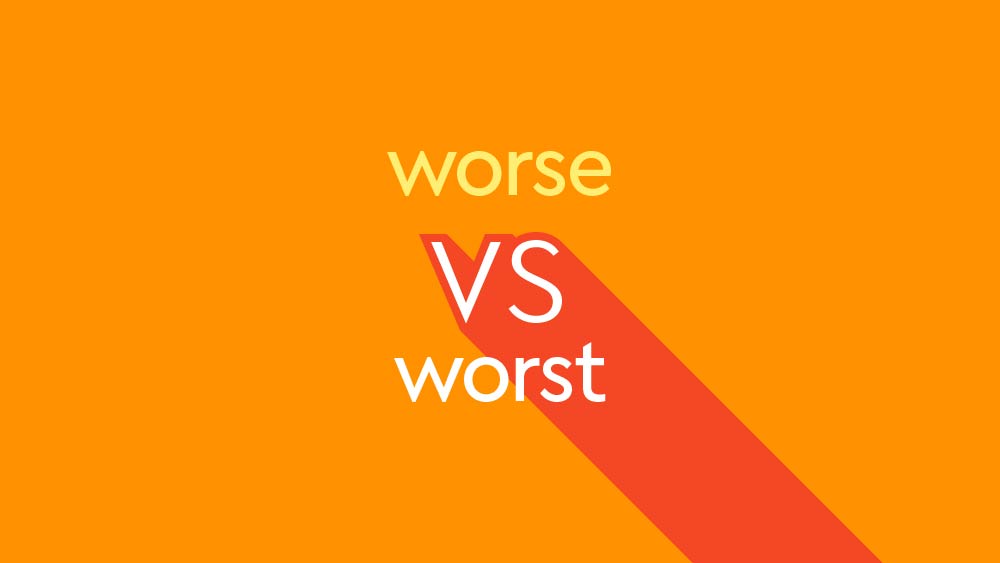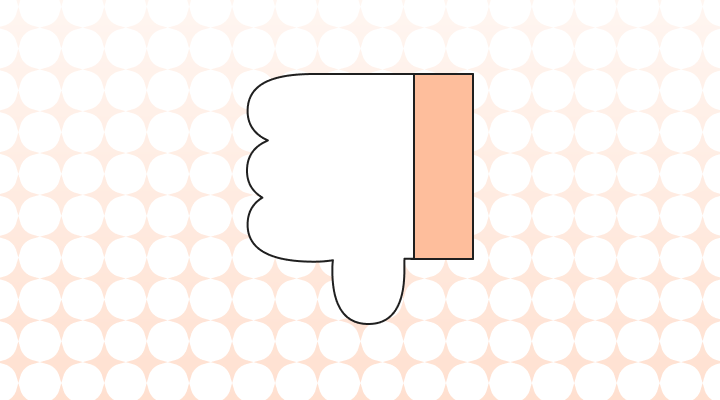Worse is the comparative form of the adjective "bad." Worst is the superlative form of "bad."
Worse and worst are two comparative forms of the adjective "bad," used to describe the quality or condition of something or someone. These words are often used to indicate degrees of negativity or inferiority, but they have distinct meanings and usages:
What does worse mean?
Worse is the comparative form of "bad." It is used when comparing two things or situations, indicating that one is of a lower quality, more unfavorable, or less desirable than the other.
Example sentence
- Her performance in the first round was worse than in the second round."
More example sentence
- Her grades this semester are worse than they were last semester.
- The traffic today is even worse than usual.
- I feel much worse today than I did yesterday.
- The service at this restaurant has gotten worse over time.
- His health took a turn for the worse after the accident.
- The economic situation in the country is getting worse by the day.
- My allergies are worse in the spring when pollen is in the air.
- This laptop is worse in terms of performance compared to the newer model.
- The situation in the conflict zone has become worse since the ceasefire ended.
- Her behavior has become progressively worse, and it's causing concern among her friends and family.
These sentences demonstrate the use of "worse" to compare the quality, condition, or degree of various situations, objects, or attributes.
What does worst mean?
Worst is the superlative form of "bad." It is used when comparing three or more things or situations, indicating that one is the lowest in quality, the most unfavorable, or the least desirable among all others.
Example sentence
- Among all the applicants, his interview performance was the worst.
More example sentences
- This was the worst day of my life.
- The weather yesterday was the worst we've seen in years.
- The worst part of the movie was the acting.
- That restaurant has the worst customer service imaginable.
- The worst-case scenario would be a total system failure.
- His decision turned out to be the worst mistake he ever made.
- The flu season this year has been the worst in recent memory.
- The worst thing you can do in a crisis is panic.
- Losing your passport while traveling abroad is the worst nightmare.
- The traffic during rush hour is always the worst.
Common idioms/phrases
- The lesser of two evils: Refers to a situation where neither option is good, but one is worse than the other.
- Make a bad situation worse: To exacerbate or worsen an already difficult or unfavorable circumstance.
- Go from bad to worse: Describes a situation that has deteriorated or become even more challenging.
- A fate worse than death: Indicates that a situation is so terrible that death might be preferable.
- Bring out the worst in someone: To cause someone to exhibit their negative qualities or behaviors.
- The worst-case scenario: The most negative or disastrous outcome in a given situation.
- Leave much to be desired: Indicates that something is not as good as it could or should be, often implying that it's quite bad.
- The worst of both worlds: Refers to a situation where you have the disadvantages of two different options without the benefits of either.
- Cry over spilled milk: To worry or complain about something that has already happened and cannot be changed, often implying that it's not worth dwelling on.
- Bring out your worst: To trigger someone's negative emotions or behaviors.
These idiomatic phrases and expressions use "worse" and "worst" to convey various aspects of negativity or deteriorating situations.
In summary, "worse" and "worst" are adjectives used to express degrees of negativity or inferiority, with "worse" being the comparative form used for two items, and "worst" being the superlative form used for three or more items.
Practice Question
- Yesterday's weather was worst/worse than today's.
- This is the worst/worse day of my life.
- Out of all the movies I've seen this year, this one is the worst/worse.
- Her performance in the first round was even worst/worse than in the second round.
- I thought the worst/worse was over, but then it started raining heavily.
- The worst/worse mistake you can make in this situation is to panic.
- Among all the options, this one seems to be the worst/worse.
- The worst/worse thing you can do when you're sick is to push yourself too hard.
- Traffic during rush hour is always worst/worse than at other times of the day.
- Losing my phone was bad, but losing my wallet was even worst/worse.
Want to sound like a native speaker?
Engram’s AI-powered grammar checker makes your English sound like a native speaker’s, suggesting natural English expressions on top of fixing grammar, spelling, punctuation, word order, and vocabulary.

Answer:
- worse
- worst
- worst
- worse
- worst
- worst
- worst.
- worst
- worse
- worse
Reference:














